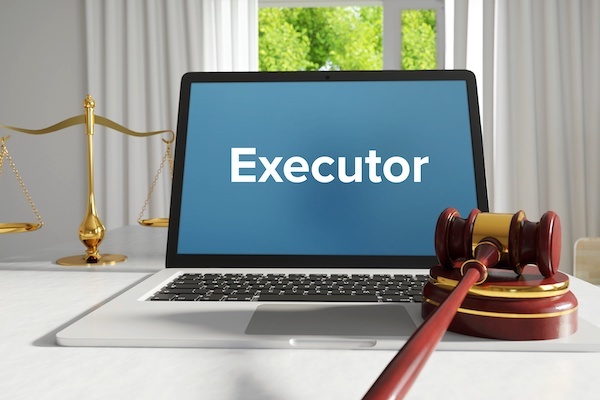What Does An Executor Do?

Sometimes clients suggest ideas that lend themselves easily to columns. This column resulted from a comment by a client who had been asked by a relative if he would be willing to serve as Executor of her estate when she passes. The question from my client was straightforward. “What does an Executor do?” I know what he was thinking – what are the responsibilities, how much work is involved, how do I know I am handling the job correctly. The same questions, of course, apply to an Executrix and, with a few modifications, to an Administrator, a person who serves where there was no Will.
The easy answer is that an Executor/Executrix probates the Will, identifies assets that pass by Will (and some that do not), arranges for payment of bills and taxes, and handles distribution of the estate to beneficiaries. The relationship is a fiduciary one, that is the Executor has a responsibility to handle the estate properly for all concerned. An Administrator does much the same except that the terms for the “Will” for distribution are set by the State.
Having served as an Executrix and a Co-Executrix myself I know the actual responsibilities are quite a bit more than might be described by textbook or in a series of regulations. Here is an expanded description of what an Executor does. The Executor can, of course, reach out to others to assist in handling his/her duties.
- Funeral and Burial Arrangements. Since the Executor is the person in charge of the estate it is generally expected he/she will be making final arrangements. He should know in advance whether burial or cremation is preferred, whether his family member or friend belonged to a church and whether a religious or other service is preferred. Payment for the funeral and related expenses is at or near the top of the list in arranging for payment in every state.
- Locate the Will and Arrange for Probate. Probate simply means recording the Will in the jurisdiction where the decedent resided at the time of her death and opening the estate. Note it is not always necessary to probate the Will even where there is one. Where all assets pass outside the Will, a good attorney would advise that probate is not necessary. However, there can still be taxes and the Register of Wills has a category known as “inheritance tax only” where taxes are paid on taxable non-probate assets. Traditionally, probate has required the Executor to appear to be sworn in. Following COVID many jurisdictions have allowed remote probate. In that case documents need to be provided in advance to the Register of Wills office and swearing in can occur remotely, such as by zoom.
- Hire an attorney. You can handle an estate without hiring an attorney but I would not recommend it unless you have experience and know what to look for. An elder law or estate attorney can point out exemptions and deductions you might not recognize, advise you regarding distributions to beneficiaries, run interference with beneficiaries and potential beneficiaries, advise regarding claiming your fee as Executor, advise regarding priority of bill payments and setting up and administration of the estate account to avoid difficulties at a later date. In addition, attorney’s fees are deductible expenses for inheritance tax purposes as are Executor fees. An experienced elder law or estate attorney can help with all or almost all of the following responsibilities. Here is a brief list of the important ones.
- Determine the assets. Obtain a taxpayer ID number. Know the liabilities and order of payment. Know the deductions. Establish the estate account. Pay the valid bills. Claim refunds and deductions to which the estate is entitled. After receiving the Short Certificates (short versions of the Letters Testamentary) from the Register of Wills, the Executor should establish an estate account. It could be located in the same bank or same financial institution as the one where the decedent banked primarily or one that is otherwise convenient for the Executor. It needs a new taxpayer ID number. Income and expenses are run through the estate account.
- Make the distributions and prepare an Accounting and Family Settlement Agreement. This summary is not everything but hits the major points. It is an honor to serve as Executor to resolve your family member or friend’s estate. Then, don’t forget to file the Final Report!
About the Author Janet Colliton
Esquire, Colliton Law Associates, P.C. Janet Colliton has practiced law for over 38 years, 37 of them in Chester County, Pennsylvania, a suburb of Philadelphia. Her practice, Colliton Law Associates, PC, is limited to elder law, Medicaid, including advice, applications and appeals, and other benefits planning including Veterans benefits, life care and special needs planning, guardianships, retirement, and estate planning and administration.
